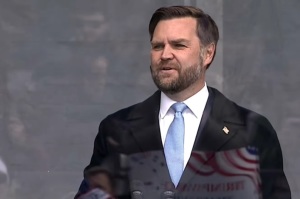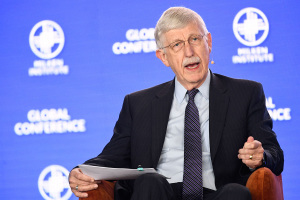Parents should lie to children about God even if they don’t believe, therapist says

Even if they don’t believe in God, parents should lie and promote faith in God anyway because it results in better mental health outcomes, according to psychoanalyst, parent coach and author, Erica Komisar.
Pointing to research from Harvard experts along with other data, Komisar highlighted the need for parents to promote faith in God even if they don’t believe, she said in a recent op-ed published by The Wall Street Journal.
“As a therapist, I’m often asked to explain why depression and anxiety are so common among children and adolescents. One of the most important explanations—and perhaps the most neglected—is declining interest in religion. This cultural shift already has proved disastrous for millions of vulnerable young people,” Komisar began.
“Children or teens who reported attending a religious service at least once per week scored higher on psychological well-being measurements and had lower risks of mental illness. Weekly attendance was associated with higher rates of volunteering, a sense of mission, forgiveness, and lower probabilities of drug use and early sexual initiation,” she noted of the latest studies on the impact of religion on the mental health of children and teenagers.
“I am often asked by parents, ‘How do I talk to my child about death if I don’t believe in God or Heaven?’ My answer is always the same: ‘Lie.’ The idea that you simply die and turn to dust may work for some adults, but it doesn’t help children. Belief in Heaven helps them grapple with this tremendous and incomprehensible loss. In an age of broken families, distracted parents, school violence and nightmarish global-warming predictions, imagination plays a big part in children’s ability to cope,” said Komisar, who is Jewish.
“Religion or spiritual practices can teach children mindfulness, a sense of physical and emotional presence necessary for mental health. No matter how active my children were when they were young, they knew when they entered our temple for services they had to calm their bodies and relax their minds. Though they complained when they were kids, and still complain at times as adolescents, they have developed the ability to calm themselves when overwhelmed,” she added.
Komisar explained on her website that depression and anxiety generally takes root in childhood and it’s better for parents to take action early to address them.
“I believe in early intervention and guidance as a way to prevent early symptoms in children from developing into long-term mental disorders,” she writes on her website.
The CDC recently reported that the suicide rate among children aged 10 through 14 nearly tripled from 2007 to 2017 and it was the second leading cause of death for children aged 10 to 14, teenagers 15 to 19, and young adults ages 20-24.
Research by the Public Religion Research Institute in 2016 on why Americans are leaving religion also previously pointed to the increasing share of American adults who have been joining the ranks of the religiously unaffiliated, and said it is being “fed by an exodus of those who grew up with a religious identity.” Younger Americans today are also more likely to be raised without a religious identity than seniors.
“Only 9 percent of Americans report being raised in a non-religious household. And while younger adults are more likely to report growing up without a religious identity than seniors (13% vs. 4%, respectively), the vast majority of unaffiliated Americans formerly identified with a particular religion,” PRRI said.
“No religious group has benefited more from religious switching than the unaffiliated. Nearly one in five (19%) Americans switched from their childhood religious identity to become unaffiliated as adults, and relatively few (3%) Americans who were raised unaffiliated are joining a religious tradition. This dynamic has resulted in a dramatic net gain—16 percentage points—for the religiously unaffiliated.”



























